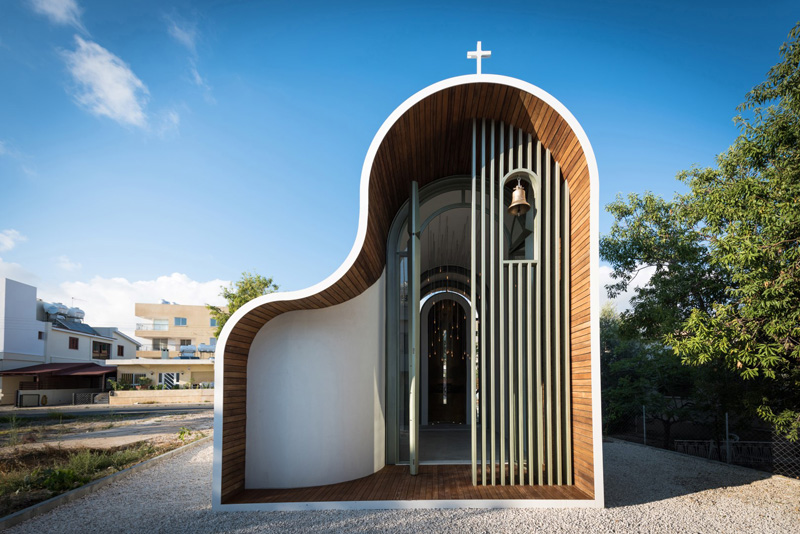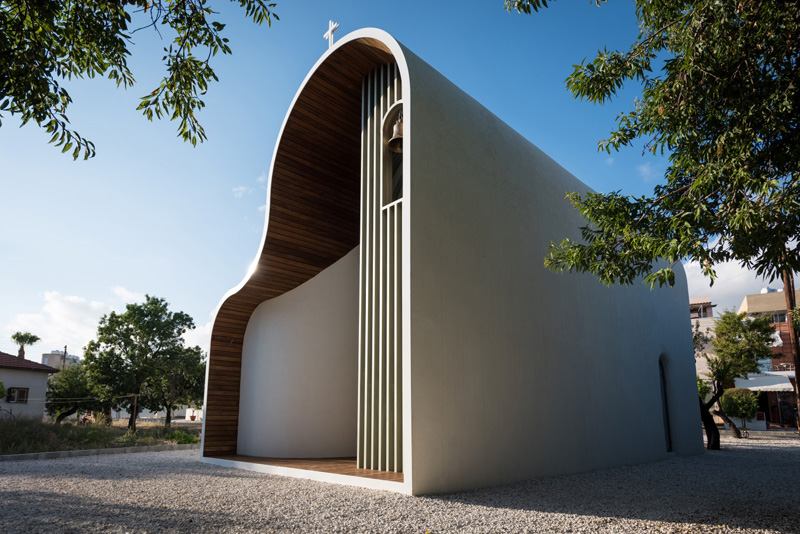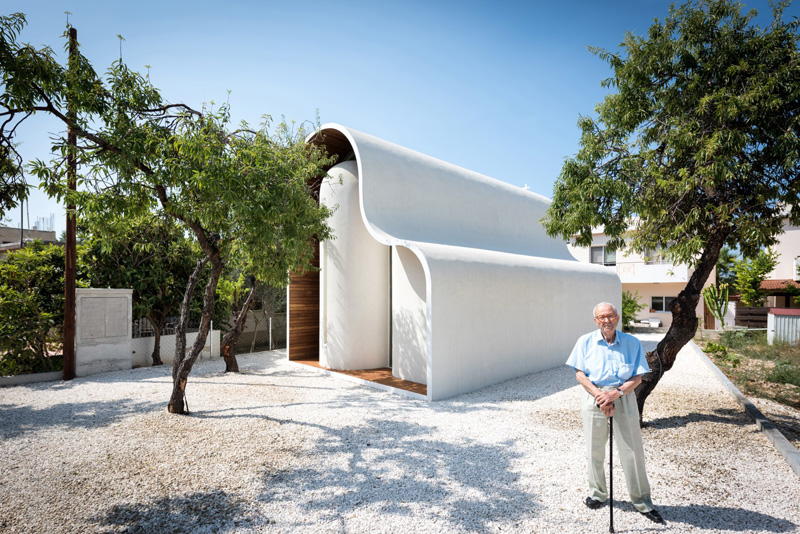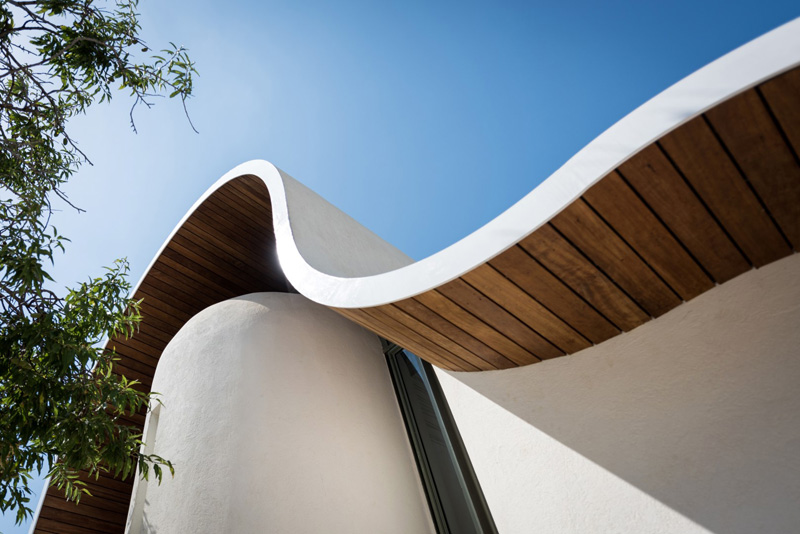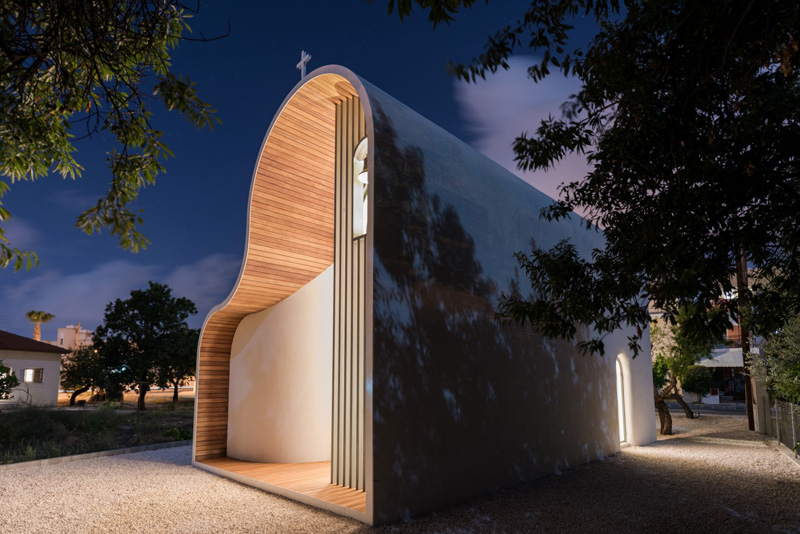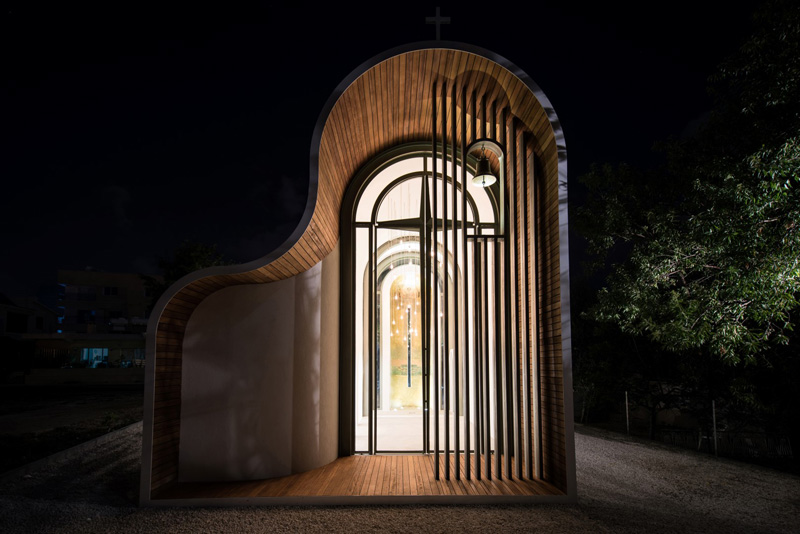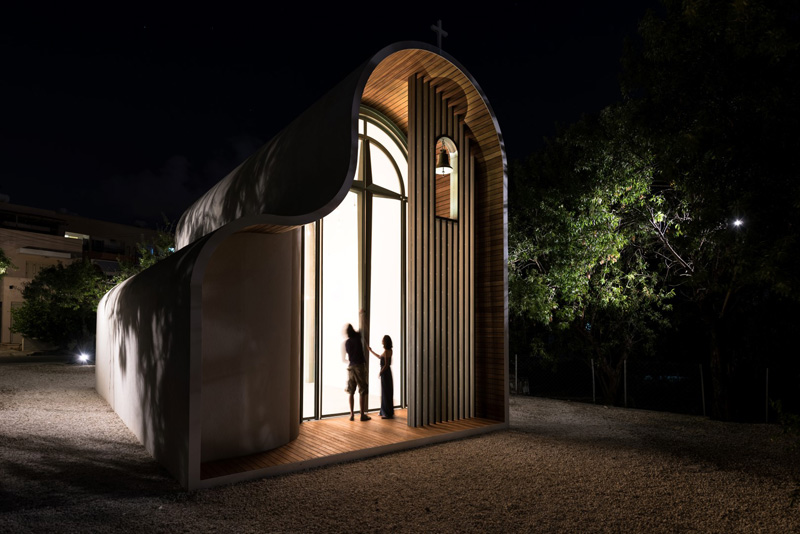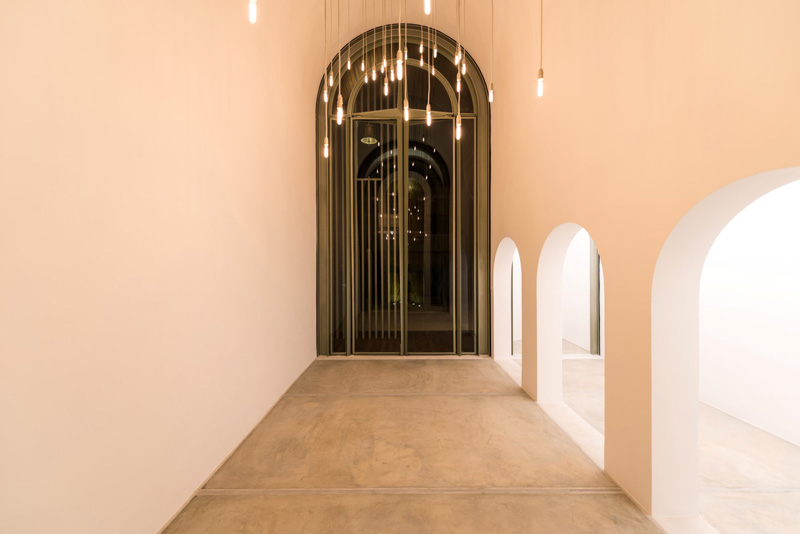Architect Michail Georgiou has designed the Apostle Peter and St. Helen the Martyr Chapel, in Pafos, Cyprus.
The architect’s description
The Greek Orthodox chapel commemorating Apostle Peter and St. Helen the Martyr is situated on Kerkiras Street, in St. Theodoros area in Pafos, Cyprus. The founding stone was placed by the Bishop of Pafos, Georgios IV, on Saturday 7th December 2013 and the project was completed on Sunday 19th July 2015.
The chapel typology belongs to the double-aisle vaulted orthodox temples. The building program includes a Narthex, a Nave, a side Aisle, a Sanctuary and a Prothesis. Morphologically, it is inspired by the local orthodox ecclesiastical architecture, while, through a series of innovative building methods and materials, it presents a contemporary example. As such, the entire chapel is formed by extruding a section along a longitudinal axis which results in a legible, lightweight and welcoming form.
The interaction of the extrusion with the programmatic elements of the building creates complex moments and rich spaces within the volume. The east and west sides of the extruded form are left open providing covered spaces filtering daylight and views. On the east side, a semi-cylindrical, self-standing element hosting the sanctuary is inserted in the volume.
On the west, vertical louvers, forming the bell-tower, provide shading for the entrance of the chapel while a large 5.5-meter-tall door allows the interior to be merged with the exterior. Finally, the landscape, identified by the almond trees complements the synthesis.
A steel structural frame and reinforced concrete walls are bound together by a thin rigid shell, acting as a seismic diaphragm, forming the composite structural system of the chapel. The shell has a total thickness of 100 mm, including thermal insulation, and it has been constructed using Ferrocement, a cementious composite used in the 60’s for constructing thin shell structures and boats.
The material and construction techniques have been revived and used for the first time on the island of Cyprus combining traditional and modern construction methods. Ferrocement allows greater precision and flexibility in adapting to the free form shape, at a much lower construction costs.
